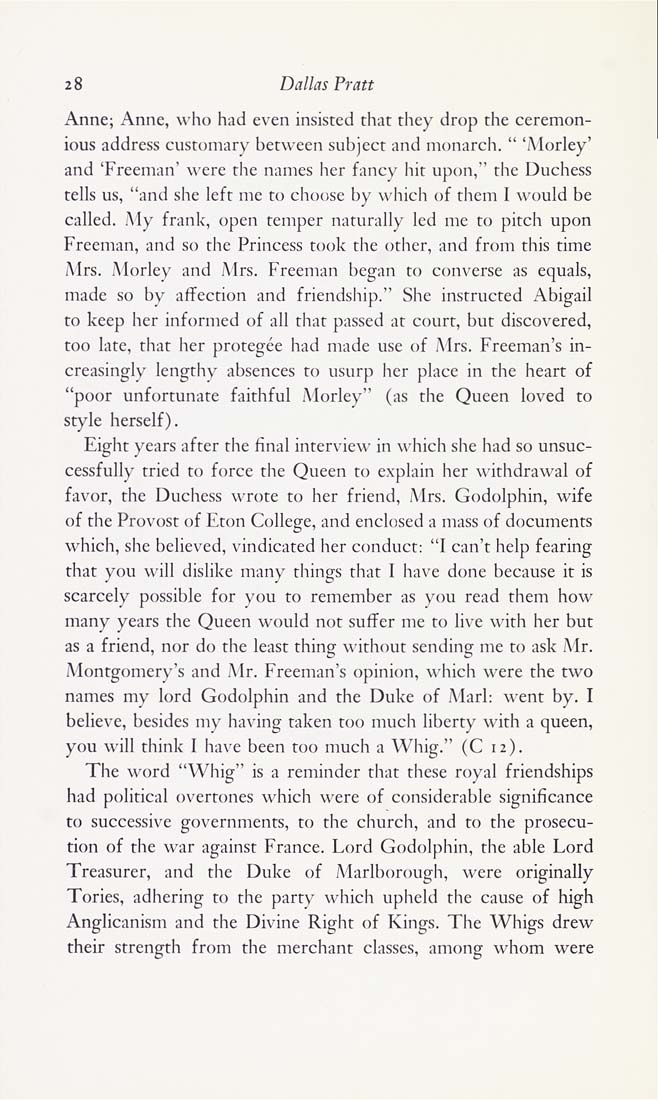Columbia Library columns (v.14(1964Nov-1965May))
(New York : Friends of the Columbia Libraries. )
|
||
|
|
|
|
| v.14,no.3(1965:May): Page 28 |

28 Dallas Pratt Anne; Anne, who had even insisted that they dtop the ceremon¬ ious address customary between subject and monarch. " 'Morley' and Treeman' were the names her fancy hit upon," the Duchess tells us, "and she left me to choose by which of them I would be called. My frank, open temper naturally led me to pitch upon Freeman, and so the Princess took the other, and from this time Mrs. Morley and Mrs. Freeman began to converse as equals, made so by affection and friendship." She instructed Abigail to keep her informed of all that passed at court, but discovered, too late, that her protegee had made use of Airs. Freeman's in¬ creasingly lengthy absences to usurp her place in the heart of "poor unfortunate faithful .Motley" (as the Queen loved to style herself). Eight years after the final interview in «hich she had so unsuc¬ cessfully tried to force the Queen to explain her withdrawal of favor, the Duchess wrote to her friend, iMrs. Godolphin, wife of the Provost of Eton College, and enclosed a mass of documents which, she believed, vindicated her conduct: "I can't help fearing that you will dislike many things that I ha\'e done because it is scarcely possible for you to remember as you read them how many years tlie Queen would not suffer me to live with her but as a friend, nor do the least thing without sending me to ask .Mr. iMontgomery's and .Mr. Freeman's opinion, which were the two names my lord Godolphin and the Duke of iMarl; went by. I believe, besides my having taken too much liberty with a queen, you will think I have been too much a Whig." (C 12). The word "Whig" is a reminder that these royal friendships had political overtones which were of considerable significance to successive governments, to the church, and to the prosecu¬ tion of the war against France. Lord Godolphin, the able Lord Treasurer, and the Duke of Marlborough, were originally Tories, adhering to the party which upheld the cause of high Anglicanism and the Divine Right of Kings. The Whigs drew their strength from the merchant classes, among whom were |
| v.14,no.3(1965:May): Page 28 |







